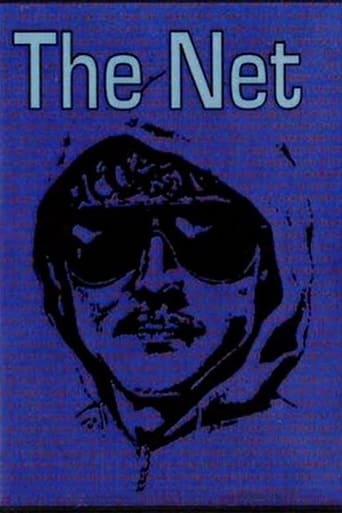

Yawn. Poorly Filmed Snooze Fest.
... View MoreHighly Overrated But Still Good
... View MoreExpected more
... View MoreThe storyline feels a little thin and moth-eaten in parts but this sequel is plenty of fun.
... View MoreThere is no denying the facts uncovered by Mr. Dammbeck. If you are a student of the history of technology, of computing especially, and its relationship with society then this film is a must see.It raises questions which have never been addressed elsewhere. Indeed Mr. Dammbeck discloses that the biases are "systemic".For example, Why did "Silicon Valley" develop in California? Why is the University of California a beacon of BOTH computer science education, and the vanguard cultural movements in the 60s? How exactly were computers marketed to the public at first? In what context? How was the decision to disseminate the mass consumption of computation taken? (This is WAY beyond the "chicken and egg" problems of scope Guy Kawasaki faced with marketing Apple PCs to the public.) What are the Taboos underpinning our technological society? Who benefits from these taboos? What has Thom Friedman left out in his discussion of our presently Global, multi-ethnic society?This is a spare, lean philosophical exploration of things never or rarely discussed in the media, but it is extremely relevant to our present!A Must See, especially for engineering students.
... View MoreThe term "post-human" refers to the postmodern status of the human being transcending beyond the boundaries of biology and genetics and into the cyborg reality of ultimate reliance on technology. That reliance is translated as more of a symbiotic relationship than that of an addiction or psychological dependency. Information technology is at the forefront of analysis into post-human critics and thinkers, as humanity has seemingly willingly jacked itself in to a hive construct with mass communications and productions of personal computers, cellphones, and other networking devices. Front and center, really, of all that is the Internet. Tied in to the Internet is its industrial-military beginnings. And where most of humanity seems to generally accept these new ways of living with only cursory glances as to its implications and consequences, for the most part there is still an undercurrent of unease running under and through the signals shot around our atmosphere. For some people, this unease is the source of a desperate need to look at these technologies and ask the question of what they are doing to us, instead of for us. This movie, The Net, is simply the best documentary on that vein I've yet seen.What this movie is essentially is Lutz Dammbeck dialoging with Ted Kaszynsky and his victims. Center to that is the relationship between technophobia and technophilia, the integrated relationship between that technology and contemporary history, cyberpunk mentality, and our new way of viewing ourselves as information carriers as opposed to psychobiological vassals. All of these concepts provide the bigger picture. The details are disturbing, but still open to interpretation. Dammbeck is not interested in placing a specific value into his documentary, but traveling around the nation and letting the values speak for themselves. He even has a woman narrate his role, kind of like Chris Marker in Sans Soleil. All along he keeps a written correspondence to Kascynsky, which makes for an interesting character study in and of itself.A good point is made within the movie that as technology changes, our relationships and perspectives of ourselves change with it. This is meant to detail the reason why the Internet has interdigitated itself into our lives, but it also should be understood to mean that these ideas might justifiably change. Who knows what the future holds for us, really? The issue at stake is, as always, do you use technology as a tool, or a weapon? --PolarisDiB
... View MoreThe film was shown this weekend (30 April) in Paris in the presence of its director, Lutz Dammbeck, who stayed to take questions from the audience afterword's.The film's premise is frightening enough -- the internet was originally developed through a sort of unholy alliance between (i) scientists bent on "remodelling" post-WW II man in order to avoid a repeat of war by isolating (through various mind-control experiments) and then removing the genesis of authoritarian personalities, (ii) the American intelligence community bent on winning the Cold War, and (iii) (somewhat improbably) a group of "hippie" non-conformists and artists who shared the vision of the aforementioned scientists. Dammbeck develops the premise by a series of interviews with various members of each group whom he considers as having been the "architechts" of the internet.Against this alliance stands Dammbeck's unpalatable anti-hero, the Unabomber (whom Dammbeck certainly does not admire, yet has some sympathy with -- Dammbeck reminds us that Kaczynski was one of the students who actually underwent the mind-control experiments in question, which may have triggered the unhinging of his mind).The problem with the film is that in each of the interviews, after having drawn out his subject into explaining his role in the development of the internet, Dammbeck then asks the interviewee whether such development was not subject to legitimate criticism and then provides as an example...the criticisms made by Kaczynski in his Unabomber manifesto! Of course, this simply triggers an emotional response from each of the interviewees that Kaczynski was either a madman, a dangerous criminal or both, so that the question of whether there is not some truth to the argument that such development was dangerous is never answered. Dammbeck never first alludes in his interviews to other critics of technological positivism who did not feel it necessary to make their criticisms by means of letter bombs.This "technique" reaches its paroxysm when Dammbeck interviews one of the Unabomber's victims, who lost an eye and a hand to one of the letter bombs, and asks him whether he does not feel that Kaczynski had some worthwhile criticisms to make. Needless to say, the interviewee responds with an entirely understandable emotional response which the audience is somehow supposed to feel constitutes a refusal to consider the merits of the question.Dammbeck might have been better off asking his of his interviewees a series of less "loaded" questions first before springing on them "So, do you think that this fellow who killed three people and wounded a dozen others (including in one case the actual interviewee!) had something worthwhile to say?" It is too bad that this technique takes the edge off what is a very troubling theory developed in the film. Still, it is a film worth seeing, particularly as it becomes clear by the end of the film that Dammbeck has in fact been keeping up a running correspondence with Kaczynski and has a good idea of what makes him tick.
... View MoreWhere does technology lead us? Ted Kaczynski, the ex-Mathematician who lived a secluded life in the woods until he was arrested and convicted as the "Unabomber", believes that it will be our doom.Lutz Dammbeck confronts us with a puzzle, looking for connections between technological positivism, mind control experiments and the hippie movement, all traced back to state power interests developing as results of World War II. However, the links are weak, and instead of presenting us with a final conclusion resulting from his research (as other documentarists would eagerly do), Dammbeck simply leaves us to solve the puzzle by ourselves, strengthen or break the links as we find appropriate, raising interesting questions on science, technology and human's role in society along the way.Thus the movie's subject reaches far deeper than the "Unabomber's" biography, which is, in Kaczynski's own words, irrelevant. The movie provides a platform for Kaczynski's critique on technological positivism, which Dammbeck seems to at least partially sympathize with. However, the final decision is left to the viewer, who is aided by additional background and research material on the movie's website.Dammbeck is coming from an artistic point of view, consciously and deliberately breaking the limits between what is art and what is "real life", creating a disturbing, thought-provoking documentary. It is admirable and a sign of true plurality that publicly financed institutions such as SWR and arte stand behind an unconventional project that handles such a provocative subject seriously.
... View More